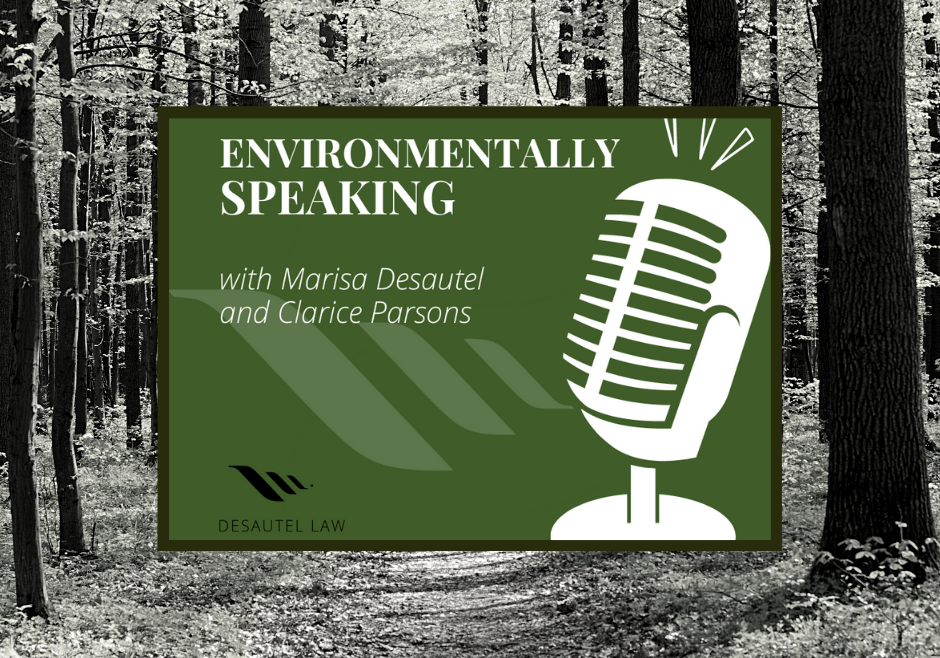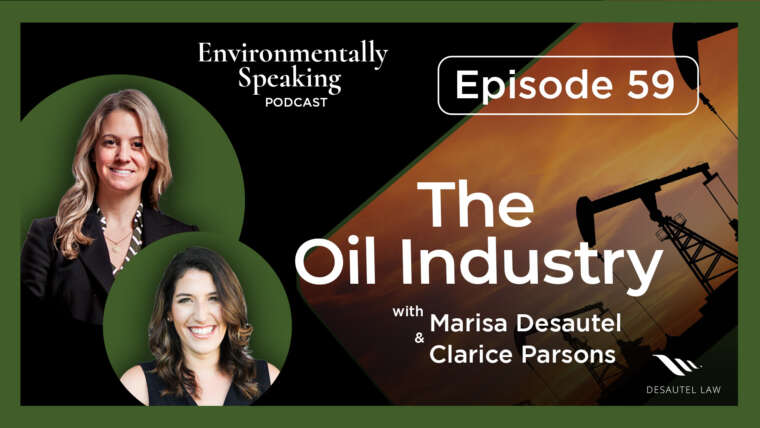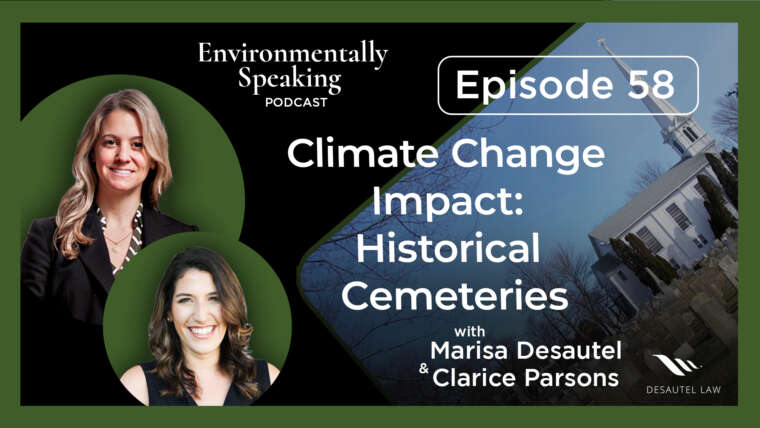This week we are talking about the drought out in California. (insert eye roll we know). But why? It started around the time Marisa was a freshman in college when her college professor stated “the root of all issues on this planet stem from overpopulation”. When we put pressure on resources that are shared by everyone, those resources start to become scarce. So what does this have to do with a drought? Take a listen and find out!
Episode Transcript
CLARICE: Hello, everybody. Good morning. And for us happy Friday the 13th.
MARISA: I know.
CLARICE: Get your spooky on.
MARISA: I walked right into that. Yeah. Good morning. Happy Friday the 13th, everyone. I’m Marisa Desautel an environmental attorney.
CLARICE: And I’m Clarice. I’m coming in with our topics, discussions, things that we want to hear about, things that have come up in the news. And today’s news topic is a little dry.
MARISA: Good one.
CLARICE: I had to. We are going to be talking about the drought out in California. I know. Now everybody’s going to eye roll. And just, yeah, what’s going on with that?
MARISA: Well, where do you begin. So when I was in undergrad college I had a professor who was from, I think, Russia and this was back in 1995, so I don’t know if he’s still with us. But this man on the first day of class in my freshman year in college for a class called Natural Resources, he berated all of us and said that the root of all issues on this planet stem from overpopulation. And I’m an 18-year-old girl. You know, I’m eager. My pencil’s ready. And I had no idea what he was talking about.
Through the course of my career and education, I think that he was onto something because the more our species puts pressure on a particular resource the less of it there is. And the situation with the drought in California is a prime example of that. Water is a finite resource. It is free to everyone and it is shared by everyone, but because of the increased demand put on it it’s difficult to regulate if there is a simultaneous decrease in natural rainwater or groundwater recharge and that’s what California is going through right now and Nevada, as well.
CLARICE: Yeah. It is a frightening topic. I was looking over an article this morning and it looks like parts of L.A., some of the – yeah, some of the districts around the L.A. area are looking to reduce water usage by another 35 percent to kind of ensure that they’ll have enough water to get through their current drought. And, you know, going over some of the fine points of this article, things that are sticking out for me are no water days or low water days.
And there was a – what I thought was interesting is there was a discussion of the local government that put in this additional reduction saying that they had to weigh between the option of enacting a no water day or reducing water use every day. And I can’t imagine having to think about an entire area and group of people – I mean, a large group of people – L.A. is not tiny – and deciding how much water can they have. It’s just something that I think we’re really lucky over here where we don’t have to think about that.
[0:03:33] MARISA: Well, knock on wood, you know, climate change is happening and the effects are sort of known, but the details of what the actual impacts will look like are still up in the air. So we could experience drought.
CLARICE: You know, after last week’s episode we were on a bit of a high. We had Superfund Zack on who, you know, tends to – requested dark topics, but his episode was really light and wonderful and now we’re back at it. We’re back at the dark sad stuff.
MARISA: Yeah. Yeah. And this past week has been – or past couple of weeks have been particularly negative, I think, because of what’s going on in the world with Ukraine and the U.S. Supreme Court draft opinion about Roe v Wade being leaked and drought. And, you know, of course the news media pushes some sensationalism at us, but the tragedy of the commons which was a topic that we talked about in a previous episode is a real concept and we’re seeing it right now as it’s playing out in California and the west. From what I read about this, it’s my understanding that the majority of the rain in California falls in the north, but the majority of California’s population exists to the south. So it’s been a longstanding issue for politicians and engineers and stakeholders to figure out how to move water from the north to the south.
And one of the major issues with that has to do with a particular body of water that connects everything. I think it’s called the Delta and it’s in Sacramento. Well, Sacramento is seeing record breaking water levels that are low and impacting the ability of water to move naturally from northern California to the south. So you’re not only experiencing local drought, but you’re also experiencing drought in the sense that your natural recharge is being depleted. So you’re out of water and the cavalry’s not coming essentially. So what do you do.
Well, Guantanamo Bay has – it’s an Army facility in Cuba. It’s got a desalination facility which means that they take over water and put it through a very pricy and advanced treatment system that removes the sodium and the other elements that make ocean water ocean water and turn it into usable drinking water for showers and human consumption. The problem with that option is where do you put those. Everyone knows California is incredibly dense with people and they’re very expensive. And then do you have an issue with climate change. Sea level is rising. How does all that fit together. I’m not an engineer. I don’t know, but there’s no easy answer, I guess is what I’m getting at.
[0:07:10] CLARICE: So even though there might be some options out there, there’s still a lot of kind of working it out and figuring out are these options applicable, will they actually be beneficial. It’s not just, we have an answer. We still have to figure out what that possible answer could look like.
MARISA: Yeah.
CLARICE: I found a really interesting quote from a New York Times article I was reading about this. The article is What to Know About California’s New Water Restrictions.
MARISA: Yeah.
CLARICE: I’ll make sure that we have it added in our show notes for anybody who wants to go back over it. But somebody who was interviewed and it says, I want to stress how critical this is. The amount of water we have available to us right now is not going to be enough to carry us through the entire year unless we do something different. And this was by – this was sent by Adel Hagekhalil the general manager for the Metropolitan Water District of Southern California in a news briefing. What a serious sentence. They don’t have enough water for the year.
MARISA: Yeah.
CLARICE: So I think this is something that we’re going to keep our eyes on. Maybe we’re going to do some periodic updates as things develop. But this is a serious and pressing issue. We’re already five months into the year.
MARISA: Yeah. They’ve not hit the hottest months, so, you know, the demand for water is going to increase as the temperatures rise. Fun stuff.
CLARICE: Happy Friday the 13th.
MARISA: Happy Friday the 13th.
CLARICE: What a dark topic for today. All right, everybody. Well, thank you so much for tuning in. It’s heavy stuff, but it is important stuff to talk about. So, you know, we try to mix it up. We’ll occasionally have something fun or funny, but at the end of the day the environment is a serious topic, so.
MARISA: It’s a serious topic and unfortunately we’ve not done enough to conserve and protect, so this is what we’re now dealing with.
[0:09:14] CLARICE: Yeah. All right. On that note go out there and make Gaylord proud. Go do something in his honor.
MARISA: Thanks, Clarice.
CLARICE: Yeah. Have a good one, everybody. If you have any questions, comments, topics, things you want us to talk about, you can find us on Instagram, Twitter, Facebook, Help@DesautelESQ.com if you want to send us a direct question or topic through e-mail. We want to hear from you guys. We love hearing from you. Oh, let us know what you think of last week’s episode with Zack. That was a wonderful experience. It was light. There was some great topics to talk about. And, also, I kind of appreciate hearing from you guys about my recycling snafu. I’ve been called out for it. I accept my shame.
MARISA: [inaudible]. It’s unacceptable.
CLARICE: It was. They told me.
MARISA: All right.
CLARICE: So have a good one, guys.
MARISA: Thanks. So you later.
Follow us on Instagram
🎙Subscribe to ‘Environmentally Speaking’ on Apple Podcasts: https://apple.co/31WNpI8
👩💼 Learn about our services.
Check out our previous episodes.




